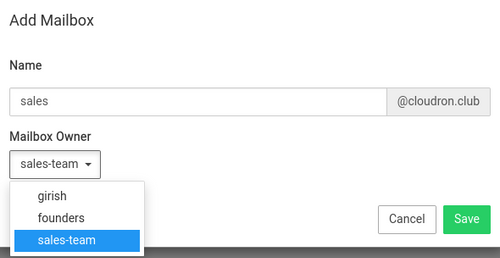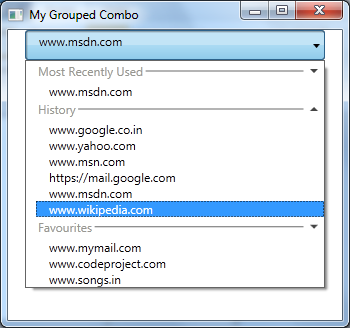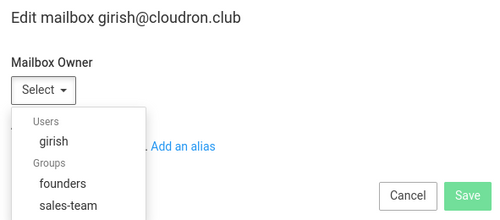What's coming in 6.0 (take 2)
-
@jimcavoli
You mean to use Kong or Traefik (this are exeple) as incoming proxy for every container ?If yes, we need to consider how reliable is Nginx and the feature that can be easily added (Proxy_Cache, brotli, WAF, ...)
@moocloud_matt yeah, there's currently a
boxlevel NGINx proxy - my idea is to replace that with a very hand-wavy something else which may be capable of shimming authentication for those things that just don't have it inbuilt (Kong) or if we go a different route on that sort of thing, we could use Traefik or similar at that layer. I think the use cases are intriguing enough to at least try the Kong route and fall back to something like Traefik if need be -
@moocloud_matt yeah, there's currently a
boxlevel NGINx proxy - my idea is to replace that with a very hand-wavy something else which may be capable of shimming authentication for those things that just don't have it inbuilt (Kong) or if we go a different route on that sort of thing, we could use Traefik or similar at that layer. I think the use cases are intriguing enough to at least try the Kong route and fall back to something like Traefik if need be@jimcavoli
for adding .htpasswd support ? or what kind of auth are you talking about? -
@jimcavoli
for adding .htpasswd support ? or what kind of auth are you talking about?@moocloud_matt Kong is a pretty expansive topic on its own, but the idea would be with it in charge of ingress/routing, you could have a simple add-on config that would take care of enabling a plugin like https://docs.konghq.com/hub/kong-inc/ldap-auth/ on the route to a particular app, so you could have HTTP basic auth, but completely backed by the full Cloudron user store for any app that doesn't have its own scheme, providing clean headers that could be easily handled by that app's eb server or whatever
-
Kong is indeed a separate complex topic. I think for the moment, if we had some template that people can quickly copy over to the app to get auth screen/login, it will help already. @nebulon do we have such a template already ? (like the one we use for our internal apps).
-
@moocloud_matt Kong is a pretty expansive topic on its own, but the idea would be with it in charge of ingress/routing, you could have a simple add-on config that would take care of enabling a plugin like https://docs.konghq.com/hub/kong-inc/ldap-auth/ on the route to a particular app, so you could have HTTP basic auth, but completely backed by the full Cloudron user store for any app that doesn't have its own scheme, providing clean headers that could be easily handled by that app's eb server or whatever
@jimcavoli
i think that's possible with nginx too, the ldap backend for auth.
Custom Template for nginx config, will be the best i think, especially for performance optimization.But this Kong proxy is interesting i will ask to my team, if they have use it.
-
@girish said in What's coming in 6.0 (take 2):
Kong is indeed a separate complex topic. I think for the moment, if we had some template that people can quickly copy over to the app to get auth screen/login, it will help already. @nebulon do we have such a template already ? (like the one we use for our internal apps).
Yes in various shapes, but all nodejs based. This would be trivial to add, however if many of those apps are just apache+php does it make sense to add supervisor+nodejs+someproxy to those apps just for a login screen?
-
@girish quick question in the mailbox sharing feature. If you make it so that a single inbox can have multiple owners (great feature btw), do you think it would then be possible to have the option to set a group as the owner so the mailbox ownership gets dynamically updated with changes in group membership? Thanks
-
@girish quick question in the mailbox sharing feature. If you make it so that a single inbox can have multiple owners (great feature btw), do you think it would then be possible to have the option to set a group as the owner so the mailbox ownership gets dynamically updated with changes in group membership? Thanks
@avatar1024 Yes, that's the idea. The ownership will be dynamic.
That said, the initial outlook for the feature is not looking so good. There are two issues that need to be sorted out (suggestions/ideas welcome):
-
Apps like SOGo show the "display name" of the user in the main UI. With a shared mailbox, it's not clear where this name should come from. With a single user, we give SOGo, the user's name. With multiple users, it's not clear what this should be.
-
The authentication (from a user's point of view) is a bit confusing. Or maybe it's not, I would welcome some feedback here. You have to authenticate with the user's username/password but use the shared mailbox as the mailbox name. In some ways, this is the case already, when you use a different mailbox name with a different username.
-
-
@avatar1024 Yes, that's the idea. The ownership will be dynamic.
That said, the initial outlook for the feature is not looking so good. There are two issues that need to be sorted out (suggestions/ideas welcome):
-
Apps like SOGo show the "display name" of the user in the main UI. With a shared mailbox, it's not clear where this name should come from. With a single user, we give SOGo, the user's name. With multiple users, it's not clear what this should be.
-
The authentication (from a user's point of view) is a bit confusing. Or maybe it's not, I would welcome some feedback here. You have to authenticate with the user's username/password but use the shared mailbox as the mailbox name. In some ways, this is the case already, when you use a different mailbox name with a different username.
@girish thanks for the reply.
Perhaps there are a few things I do not understand about the technical implementation of such a feature but I will still try to give my opinion. As you describe in the first post on this thread the idea is, rather that a "shared mailbox" as such, to have a single mailbox with multiple owners, so:
-
for point 1) I suppose you mean that the name of the "owner" is fed to the app when the owner is assigned to the mailbox rather than when the user logs in? If so, would it possible to feed the name of the user that logs in into that (which will be recognised through its unique pair of credential: mailbox name + its unique password). If not then I'd say, as a first implementation of this feature (which could be improved later), then the name of the mailbox (as in the prefix before the @) should be fed to the app as the Display Name, when more than one owner are set to that mailbox
-
for point 2, then yes, as you say the username (for login) should just remain the full mailbox email address (just that in the case of a shared one, one username will but associated to multiple passwords as valid login credentials).
-
-
@girish quick question in the mailbox sharing feature. If you make it so that a single inbox can have multiple owners (great feature btw), do you think it would then be possible to have the option to set a group as the owner so the mailbox ownership gets dynamically updated with changes in group membership? Thanks
@girish Or as I suggested in my previous post, if we could assign a "group" as the owner of a mailbox, then group name could be fed as the Display Name (for point 1) and you potentially use the group name for the login username (for point 2).
@avatar1024 said in What's coming in 6.0 (take 2):
...be possible to have the option to set a group as the owner...
-
@girish Or as I suggested in my previous post, if we could assign a "group" as the owner of a mailbox, then group name could be fed as the Display Name (for point 1) and you potentially use the group name for the login username (for point 2).
@avatar1024 said in What's coming in 6.0 (take 2):
...be possible to have the option to set a group as the owner...
@avatar1024 said in What's coming in 6.0 (take 2):
@girish Or as I suggested in my previous post, if we could assign a "group" as the owner of a mailbox, then group name could be fed as the Display Name (for point 1) and you potentially use the group name for the login username (for point 2).
Making shared mailbox feature work only with groups is an excellent idea! I have to try this out and get back on how well this works.
-
@jimcavoli
i think that's possible with nginx too, the ldap backend for auth.
Custom Template for nginx config, will be the best i think, especially for performance optimization.But this Kong proxy is interesting i will ask to my team, if they have use it.
@moocloud_matt said in What's coming in 6.0 (take 2):
@jimcavoli
i think that's possible with nginx too, the ldap backend for auth.
Custom Template for nginx config, will be the best i think, especially for performance optimization.But this Kong proxy is interesting i will ask to my team, if they have use it.
Should we branch this topic off into its own thread about centralized authentication? It seems like an important aspect to discuss but this thread is about 6.0, which this couldn't be a part of, right? This would be further down the road? @girish @nebulon
-
@avatar1024 said in What's coming in 6.0 (take 2):
@girish Or as I suggested in my previous post, if we could assign a "group" as the owner of a mailbox, then group name could be fed as the Display Name (for point 1) and you potentially use the group name for the login username (for point 2).
Making shared mailbox feature work only with groups is an excellent idea! I have to try this out and get back on how well this works.
@girish Glad it was at least a useful suggestion. Let's see if it works in practice

-
@girish Glad it was at least a useful suggestion. Let's see if it works in practice

@avatar1024 That worked out quite nicely. You can now select a group as owner of a mailbox. founders and sales-team are groups in the screenshot below.

-
@avatar1024 That worked out quite nicely. You can now select a group as owner of a mailbox. founders and sales-team are groups in the screenshot below.

@girish Will each person's password work for IMAP/SMTP? (users in the group)
-
@girish Will each person's password work for IMAP/SMTP? (users in the group)
@marcusquinn Yes, that's the idea. Each user can use their own password for sending/receiving with same mailbox.
-
@avatar1024 That worked out quite nicely. You can now select a group as owner of a mailbox. founders and sales-team are groups in the screenshot below.

@girish Just a suggestion, but IMO it should have two dropdowns like the access section for apps. One for users and one for groups. Unsure of the implementation details but that just stood out to me.
-
@girish Just a suggestion, but IMO it should have two dropdowns like the access section for apps. One for users and one for groups. Unsure of the implementation details but that just stood out to me.
@atrilahiji Currently, one can only choose a user or a group. This was just the initial UI anyway for testing the backend. I think we probably need select box with groups like

-
@atrilahiji Currently, one can only choose a user or a group. This was just the initial UI anyway for testing the backend. I think we probably need select box with groups like

@girish makes sense. Be good as an input-select box, so you can partial-type what you're looking for in the case of long lists.
-
@girish Just a suggestion, but IMO it should have two dropdowns like the access section for apps. One for users and one for groups. Unsure of the implementation details but that just stood out to me.
@atrilahiji That was easy.

@marcusquinn Yes, it's searchable like the one in user's/group's view. The search only appears with more than 5 users.
